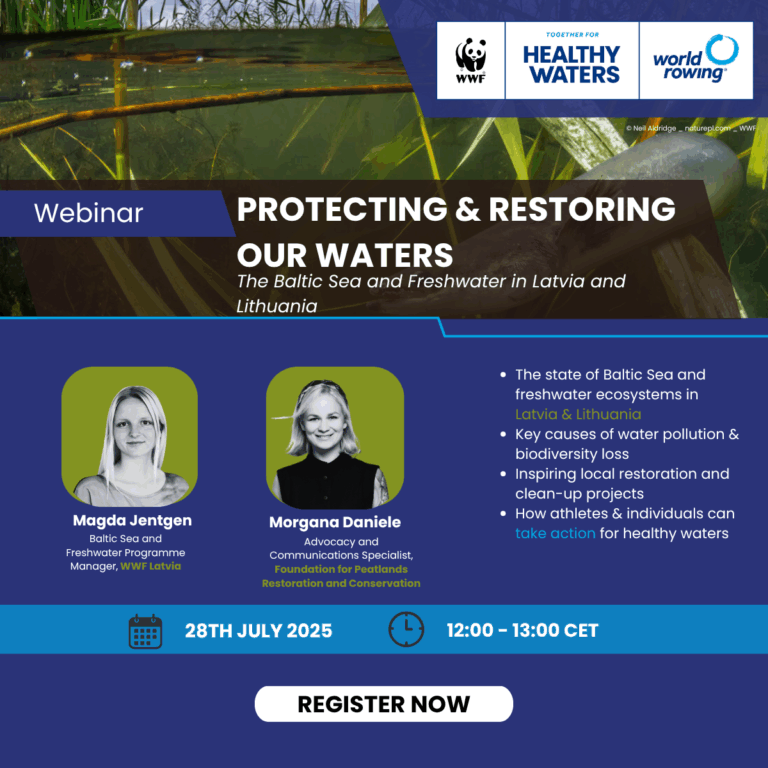The World Rowing – WWF Healthy Waters Alliance has taken a bold stroke towards healthier waterways with its recent webinar, “Protecting Our Waters – The Baltic Sea and Freshwater in Latvia and Lithuania.
The event, held online and now available to watch here, brought together science, advocacy, and grassroots action to address the urgent ecological challenges facing the Baltic Sea and the freshwater ecosystems of Latvia and Lithuania.
Two distinguished hosts led the session: Magda Jentgena, Baltic Sea and Freshwater Programme Manager at WWF Latvia, and Morgana Daniele, Advocacy and Communication Specialist at the Lithuanian-based Foundation for Peatlands Restoration and Conservation.
Jentgena opened the discussion with a science-driven overview of the current state of regional waters, detailing how pollution, eutrophication, biodiversity loss, and habitat degradation threaten rivers, lakes, and coastal areas. She highlighted the interconnected nature of agricultural runoff, industrial waste, and climate change—factors combining to put immense pressure on aquatic ecosystems.
Daniele followed with a hopeful and practical perspective, sharing examples of innovative restoration projects already making a difference. From wetland recovery to sustainable land-use practices, her presentation underscored how communities across Latvia and Lithuania are rolling up their sleeves to reverse the decline.

While the conversation tackled sobering realities, the message was far from grim. The webinar emphasised solutions, collaboration, and citizen involvement, including how everyday choices—like reducing chemical use, supporting eco-friendly agriculture, or participating in clean-up events—can have measurable impacts.
Rowing served as both a metaphor and a rallying point throughout the discussion. Just as a rowing crew must work in harmony to move forward, restoring and protecting water health requires coordinated effort from scientists, policymakers, athletes, and the public. Healthy waters are not just essential for environmental balance; they’re vital for recreation, community well-being, and future generations.

